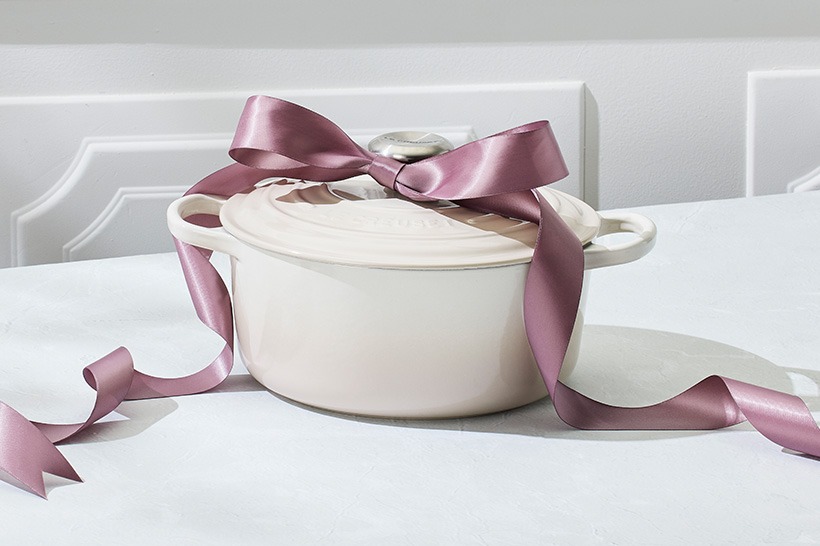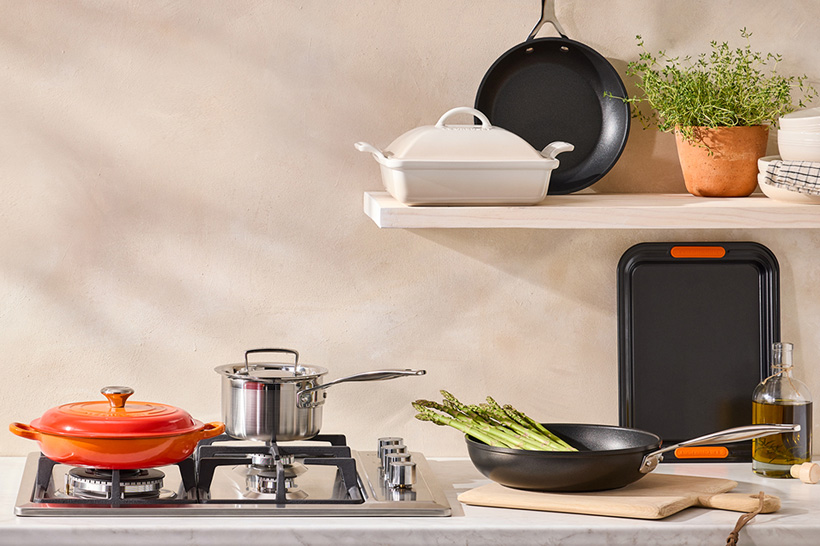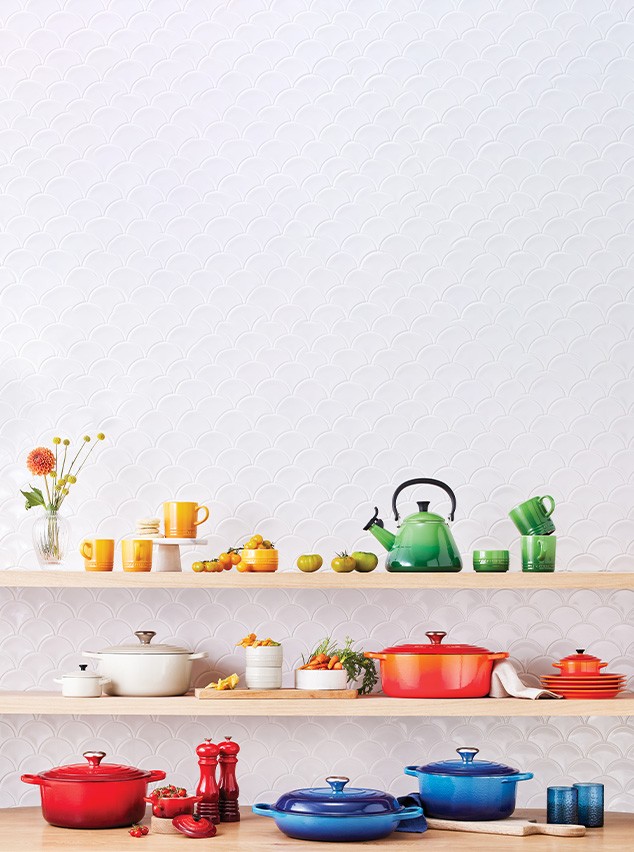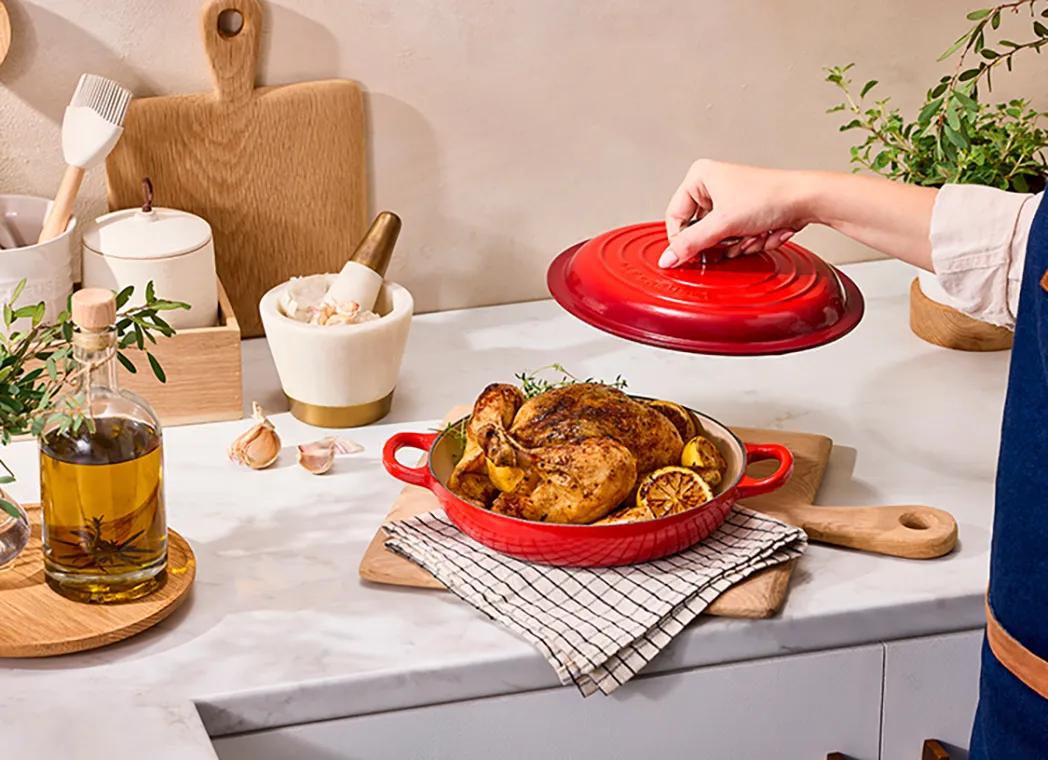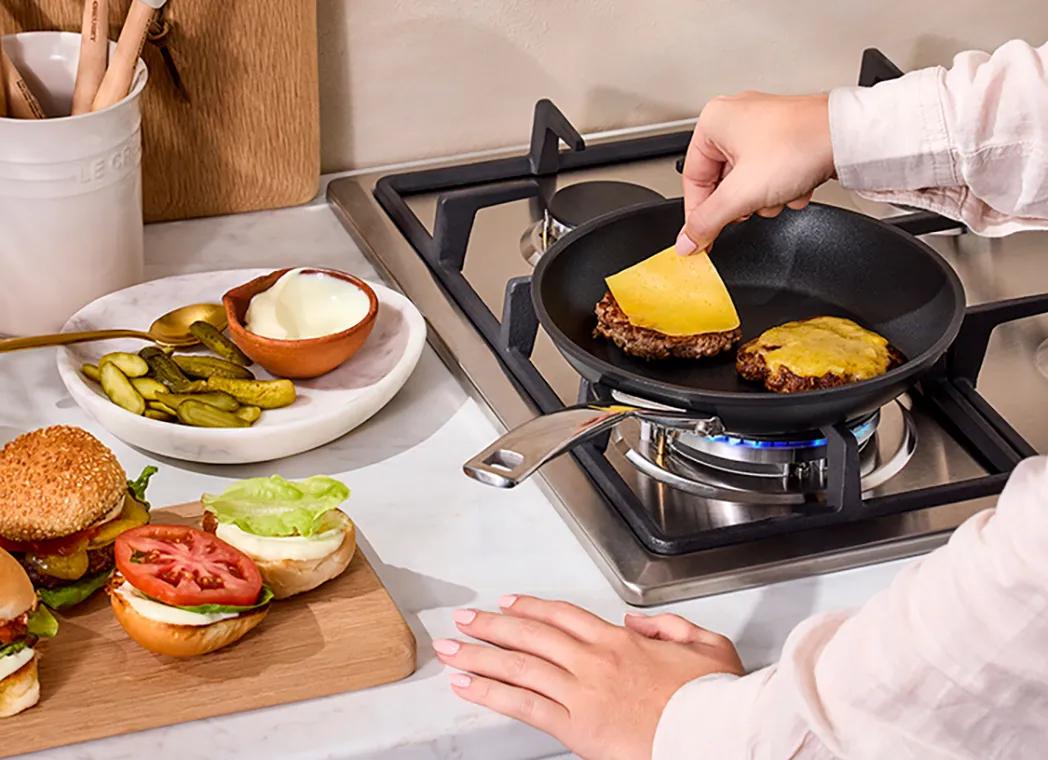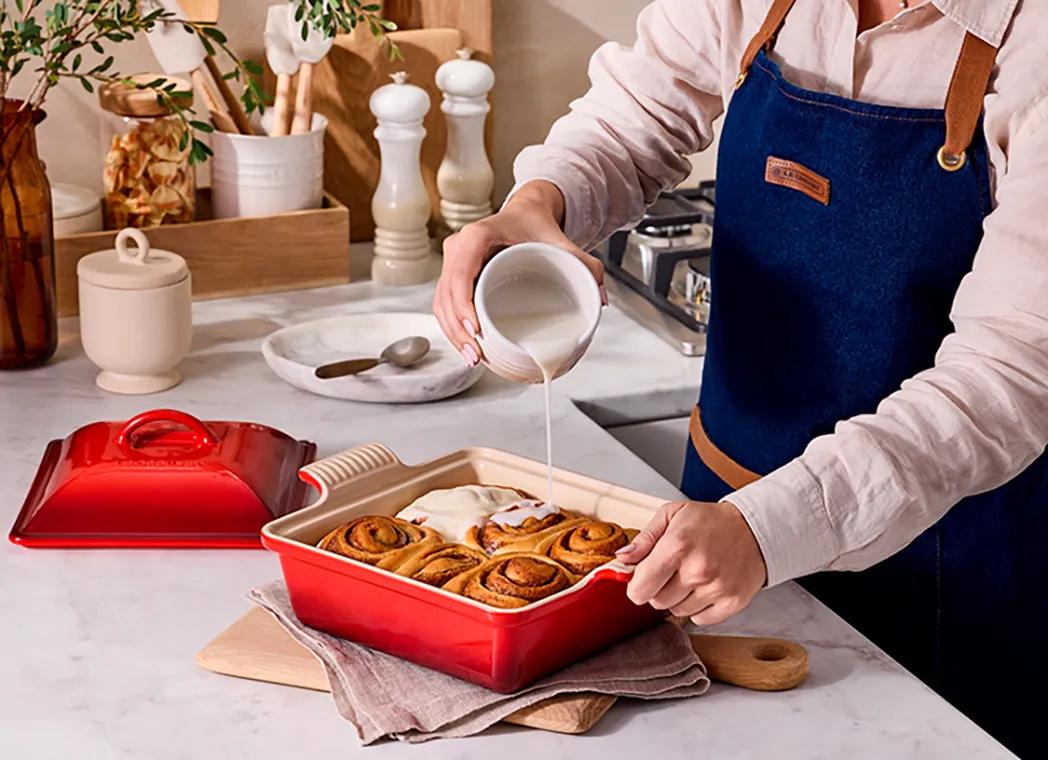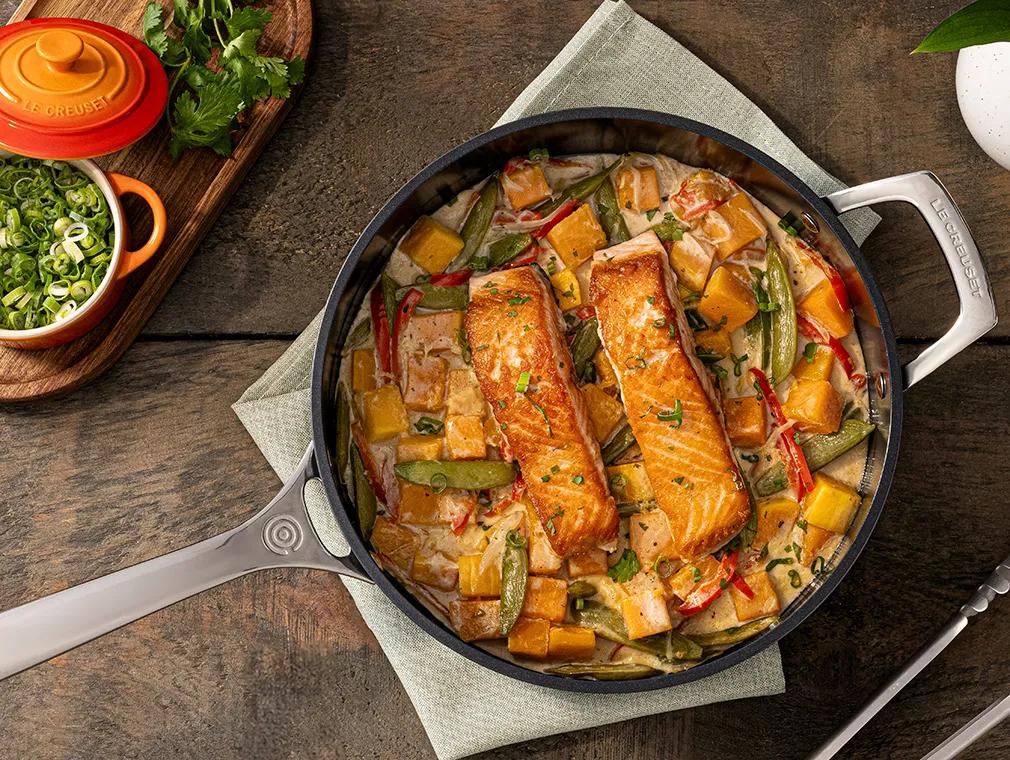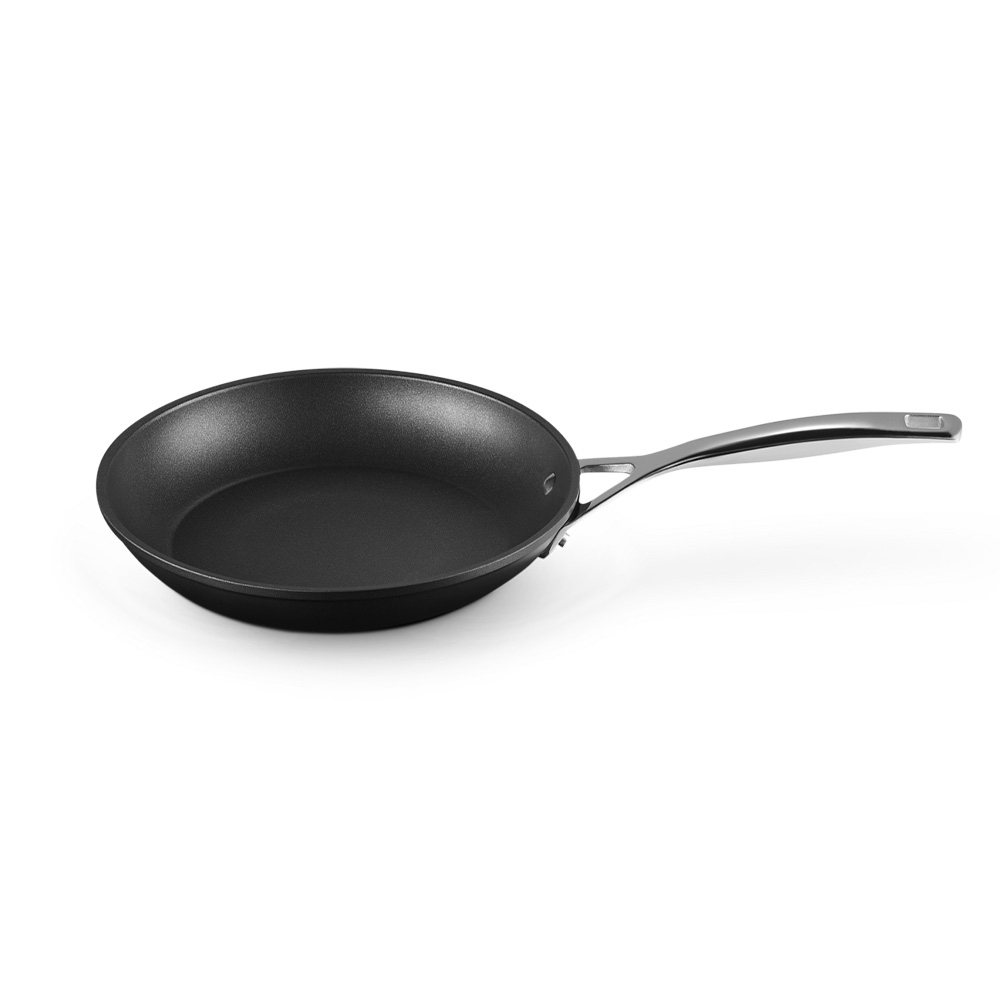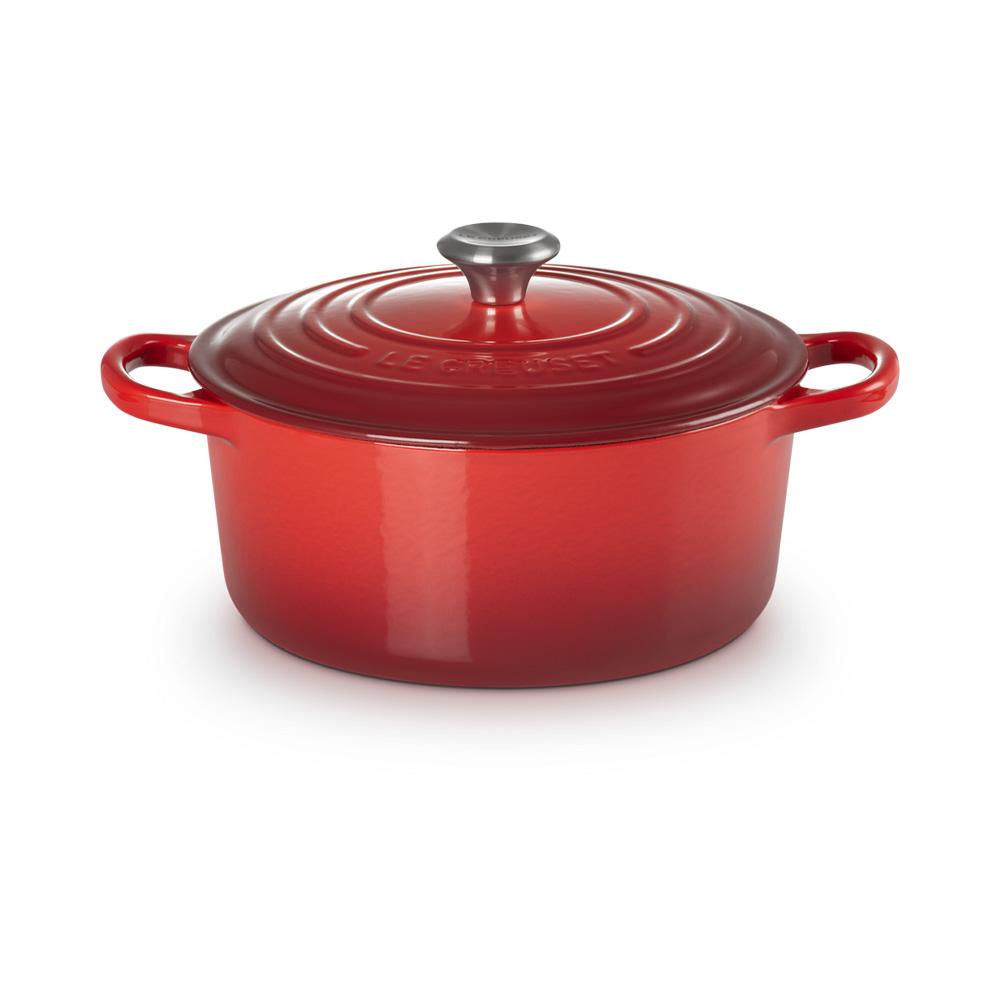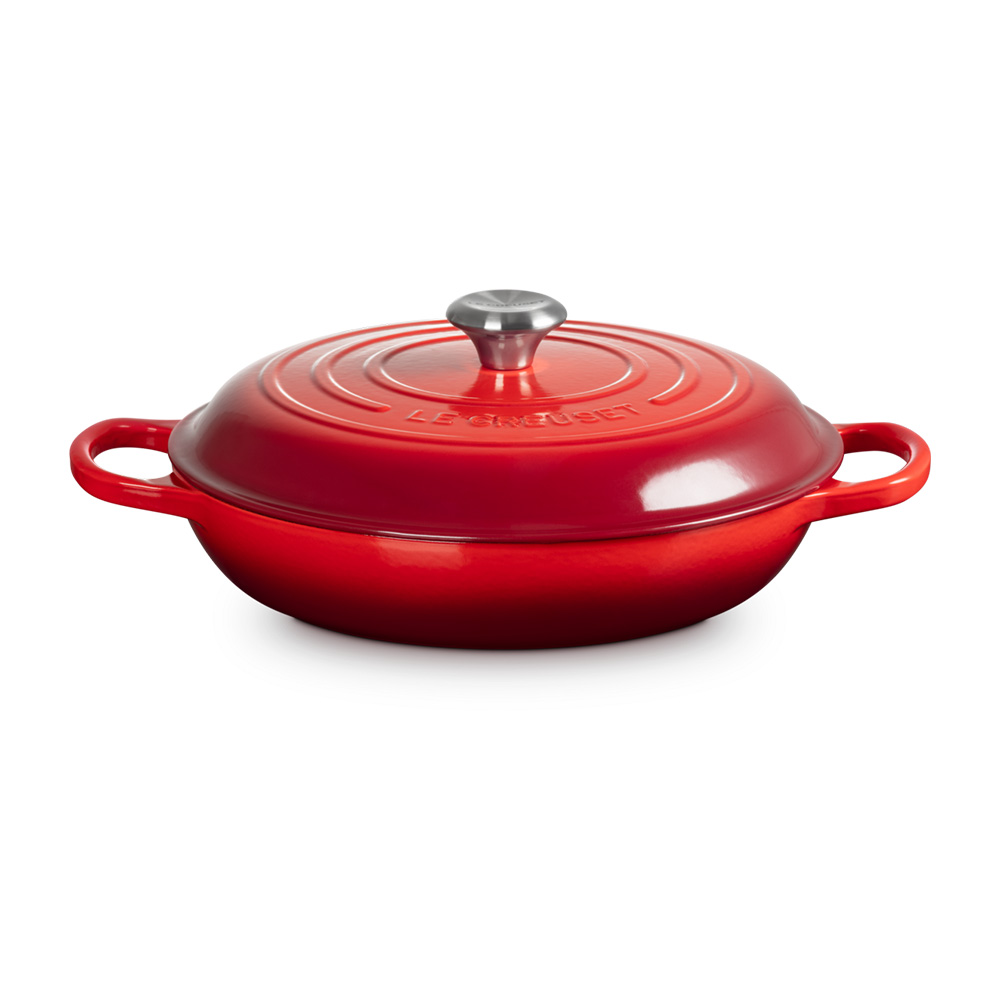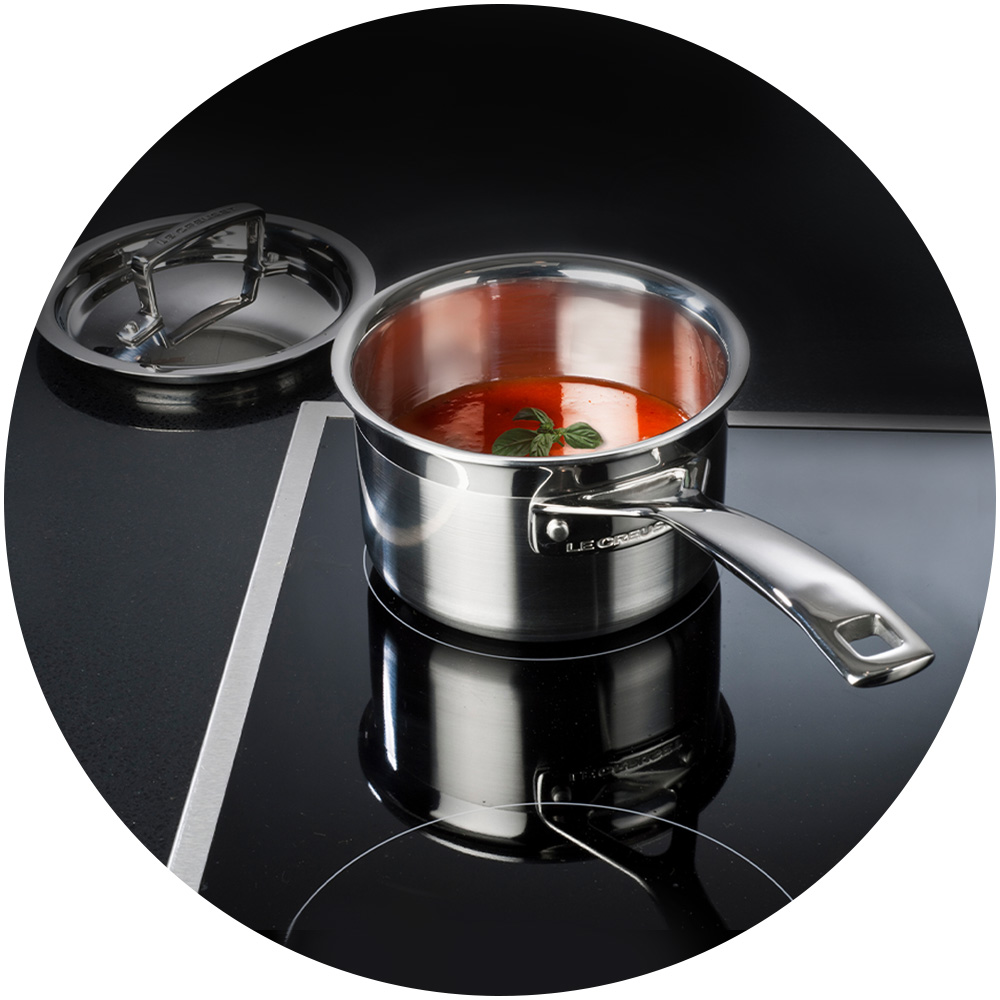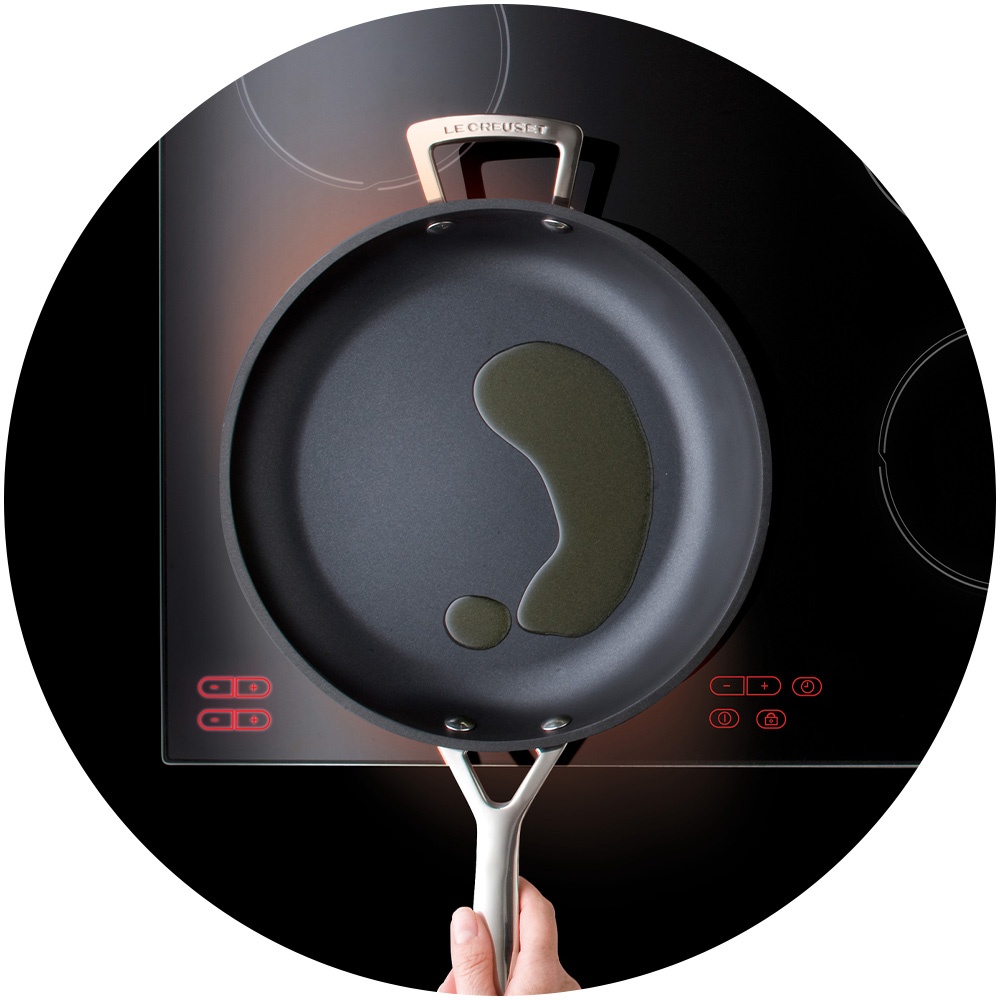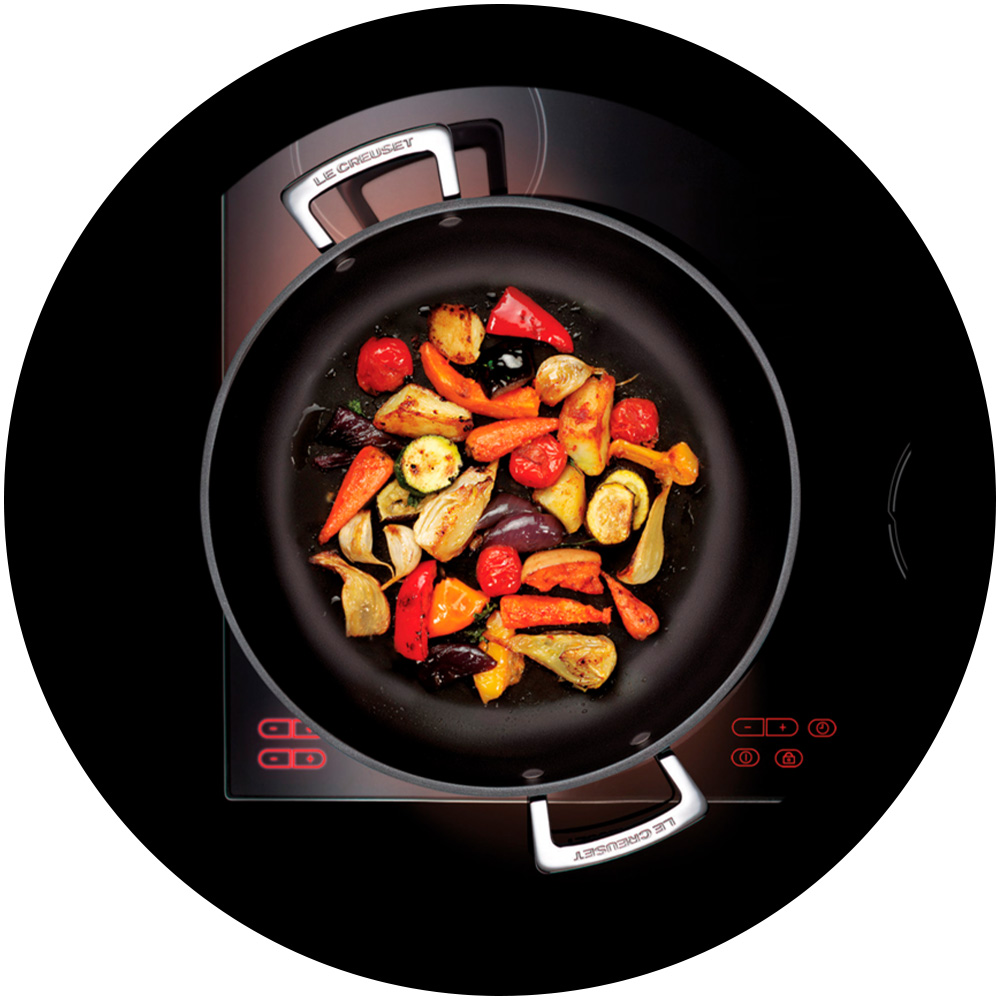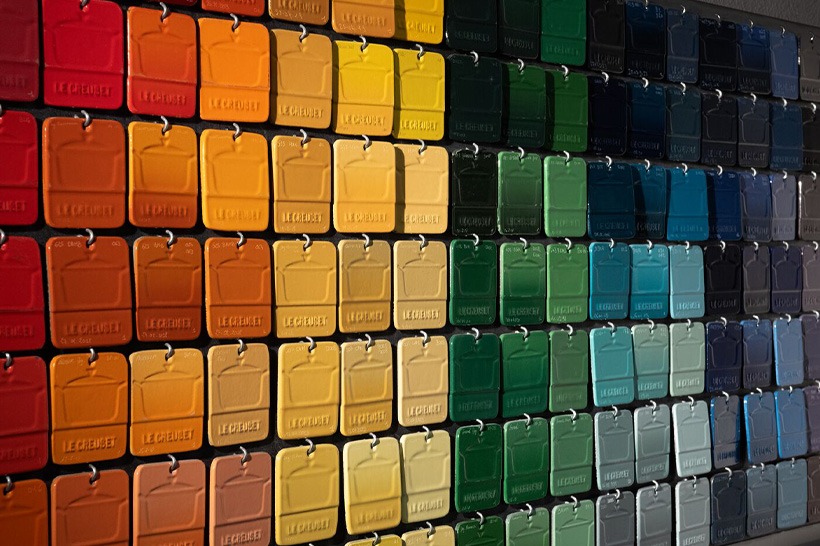Guide to the Best Pans and Pots for Induction Hobs
Induction cooking is becoming increasingly popular amongst home cooks and culinary professionals alike. Through magnetic currents, pots, pans and other cookware is heated directly resulting in maximum precision, efficiency and safety. In this guide you will discover how our induction-compatible pans and pots can be applied to this modern way of cooking.
What to Consider When Buying Induction Cookware
Are you wondering where to start? Here are some things to look out for when purchasing new pans and pots for your induction hob.
Uniform Base
The entire base of the cookware should make contact with the induction hob. If a pot or pan is warped, it might result in poor contact and reduce its effectiveness on induction.
Induction Compatibility Sign
Always look for the symbol on your cookware packaging that indicates induction compatibility. Our induction-compatible cookware is clearly marked to make the selection process easier.
Magnetic Base
Test if the cookware has a magnetic base by seeing if a magnet sticks. Our Cast Iron, Stainless Steel, Toughened Non-Stick and Essential Non-Stick Ceramic pans and pots are magnetic and suitable for induction.
Start with Your Preferred Sizes and Styles
Start with the pots, pan and cookware you use the most often and which cookware suits your cooking preferences to ensure you have the essentials covered.
Induction-Compatible Cookware Materials
Using top-quality materials to provide durability and even heat distribution, Le Creuset has a wide variety of induction hob pots and pans to suit your cooking needs. Whether it's Cast Iron, Stainless Steel, Toughened Non-Stick or Essential Non-Stick Ceramic, our cookware can be trusted for exceptional induction cooking on the hob (and in the oven).
Enamelled Cast Iron
Our Cast Iron’s natural magnetism means it is ideal for induction cooking. Avoid using the booster function.
Stainless Steel
Thanks to a magnetic stainless steel brush and base disc, our Stainless Steel can be used on induction hobs.
Toughened Non-Stick
A magnetic stainless steel disc throughout the entire base optimises induction compatibility.
Best materials for cooking
Discover a diverse selection of cookware, each offering distinct advantages, and discover the best materials for you.
Discover the Best Induction Cookware for You
Explore the possibilities of induction cooking and elevate your culinary experience with our trusted cookware.
Reviews & Testimonials
Do you still need to be convinced? Read the feedback from our valued clients and verified purchasers. Better yet, try our cookware for yourself and see the difference in your induction cooking results.
Tips for Induction Cooking
Master the art of cooking on induction hobs. These tips will help you achieve the best results while taking care of your cookware.
Understanding Induction-Compatible Cookware
Is Le Creuset suitable for induction cooking?
From pots and pans to kettles and casseroles, we offer various cookware designed with induction compatibility in mind. Making them easy to identify, these products’ packaging showcases the compatibility symbol.
What should you look for when buying induction-compatible cookware?
Ensure your pot, pan, or other cookware is magnetic first– a hallmark of induction compatibility. Then, select a premium material such as our Enamelled Cast Iron, Stainless Steel, Toughened Non-Stick or Essential Non-Stick Ceramic cookware. Expertly crafted, these make perfect culinary investments.
What are the benefits of induction hob cooking?
Induction hob cooking offers rapid heating and cooling thanks to its electromagnetic energy. This method is more efficient as it utilises magnetic properties to generate heat by turning cookware into its heat source.
How do you heat a pan on an induction hob?
Choose the correct-sized hob for your cookware piece. Place on low heat and add oil. Let it heat slowly, not exceeding two-thirds of the maximum heat setting. If the oil sizzles, you are ready to cook. We recommend cooking over low to medium heat, avoiding the boost function.
More to Explore
Are you intrested in helpful tips and tricks for your cookware, finding colourful inspiration for your kitchen, or exploring delightful new recipes to try? We have a wide variety of guides and articles available for you to gain inspiration from. Feel free to take a look and explore!





